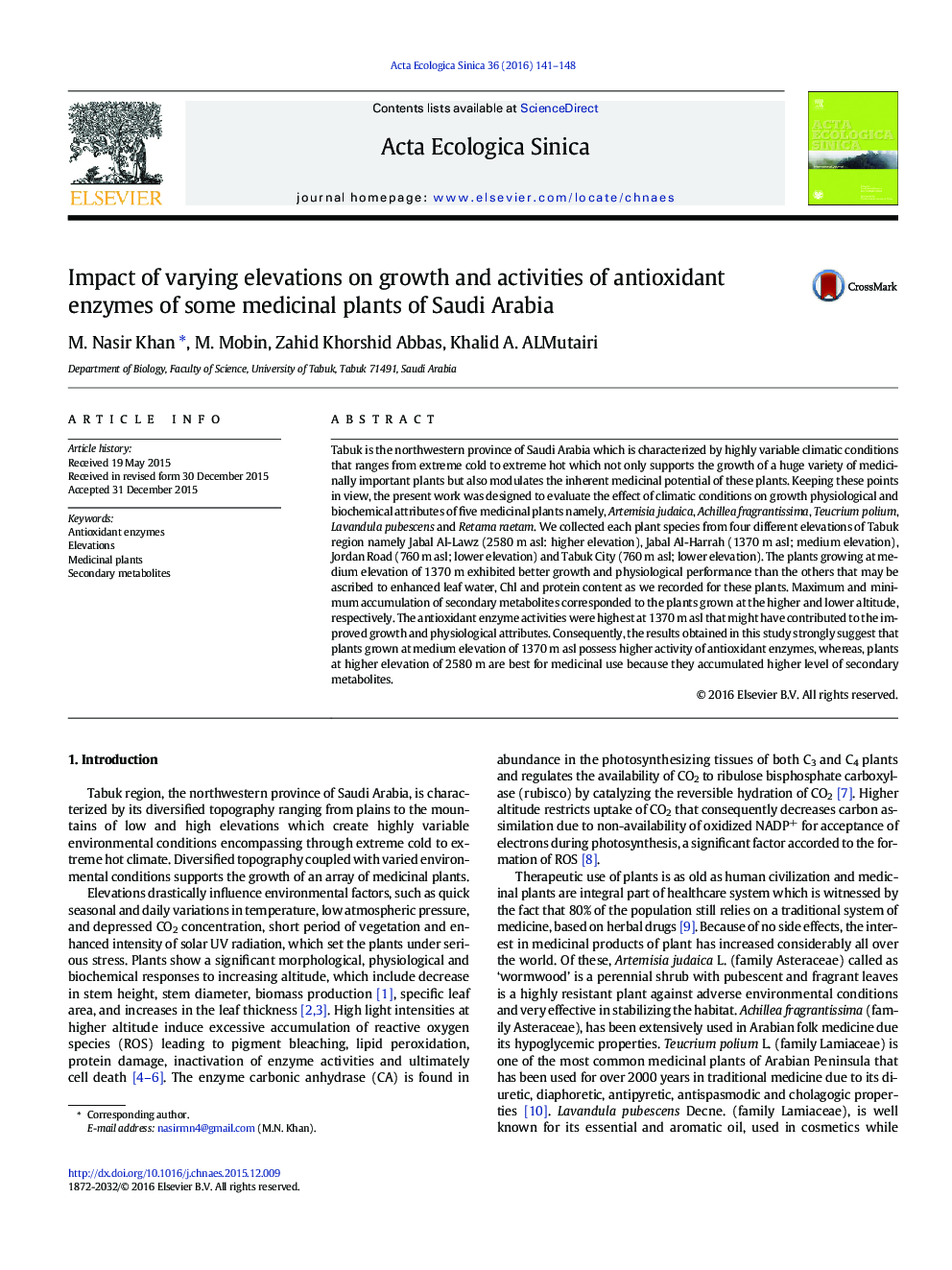| Article ID | Journal | Published Year | Pages | File Type |
|---|---|---|---|---|
| 4379780 | Acta Ecologica Sinica | 2016 | 8 Pages |
Tabuk is the northwestern province of Saudi Arabia which is characterized by highly variable climatic conditions that ranges from extreme cold to extreme hot which not only supports the growth of a huge variety of medicinally important plants but also modulates the inherent medicinal potential of these plants. Keeping these points in view, the present work was designed to evaluate the effect of climatic conditions on growth physiological and biochemical attributes of five medicinal plants namely, Artemisia judaica, Achillea fragrantissima, Teucrium polium, Lavandula pubescens and Retama raetam. We collected each plant species from four different elevations of Tabuk region namely Jabal Al-Lawz (2580 m asl: higher elevation), Jabal Al-Harrah (1370 m asl; medium elevation), Jordan Road (760 m asl; lower elevation) and Tabuk City (760 m asl; lower elevation). The plants growing at medium elevation of 1370 m exhibited better growth and physiological performance than the others that may be ascribed to enhanced leaf water, Chl and protein content as we recorded for these plants. Maximum and minimum accumulation of secondary metabolites corresponded to the plants grown at the higher and lower altitude, respectively. The antioxidant enzyme activities were highest at 1370 m asl that might have contributed to the improved growth and physiological attributes. Consequently, the results obtained in this study strongly suggest that plants grown at medium elevation of 1370 m asl possess higher activity of antioxidant enzymes, whereas, plants at higher elevation of 2580 m are best for medicinal use because they accumulated higher level of secondary metabolites.
